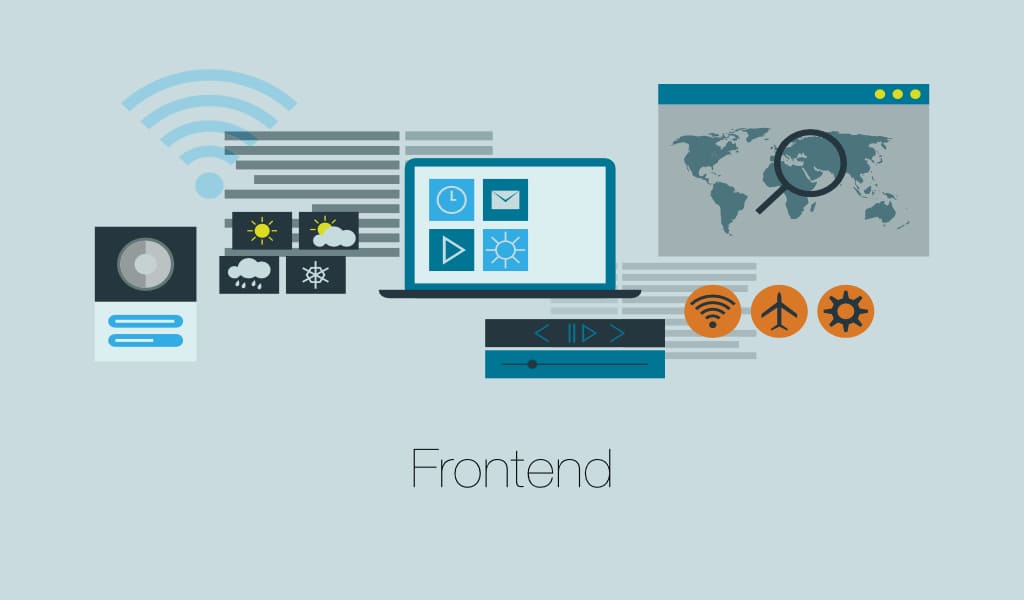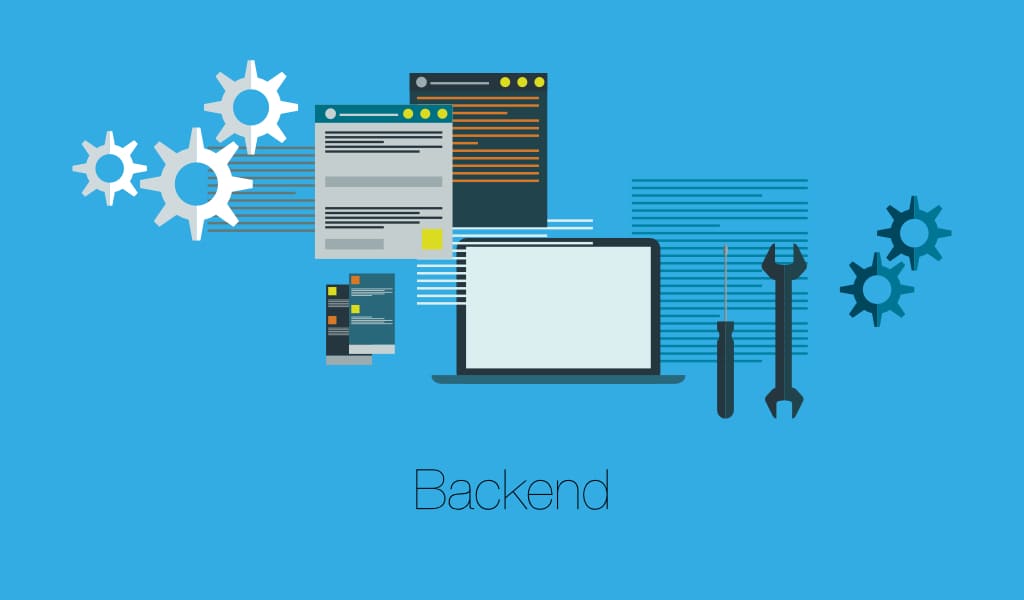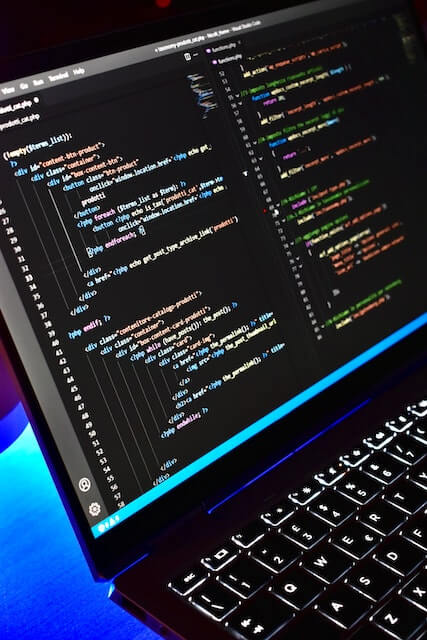
Top Web Development Frameworks in 2019

If you have a business on the anvil, chances are high you’ll need a robust website to sell your goods or services. We all know that a good website is one that’s easy to use and navigate. It should be responsive, optimized for different devices and browsers to make the shopping experience truly convenient.
That being said, we in no way intended to undermine the role of marketing in the success of your project. However, the way your future website will look and function heavily depends on the framework you use.
In this article, we will go over the most popular web frameworks of 2019 that are instrumental in building a modern website.
Most popular frameworks: Frontend

The frontend of a website is crucial to the success of your business. It takes seconds for an average user to form an opinion about your company, just by looking at your website. That’s why any business requires a functional and attractive website, which can be achieved by creating an eye-catching design, functionality and easy navigation. At this point, modern frameworks for frontend development are your best allies.
Spoiler alert, all of the frontend frameworks on our list are JavaScript frameworks. There’s no denying it, JavaScript is everywhere. According to StackOverflow, JavaScript takes the lead among most loved languages, and three JS-based tools are the top three in the respective category. With this language, we can experience a truly powerful frontend with interactive interfaces, responsive design, and fast user experience.
Angular JS: JavaScript framework for any kind of app, single page applications (SPA) in particular
Angular is a popular JavaScript platform supported by Google. It offers a vast library with lots of additional extensions written by users. This framework has become the backbone of many projects because it offers comprehensive front-end development, powerful performance, and less time for development due to the reusability of code.
- The use of MVC architectural pattern.
- User Interface can be developed with HTML.
- Ready-made templates to build the framework faster.
- The use of the “plain old JavaScript objects” model.
- The built-in dependency injection subsystem.
This framework is used by such companies as Google, Microsoft, Paypal, and other tech giants.
React: large, complex web interfaces as well as single-page applications
A commonly used library from Facebook suited for complex web solutions. React advocates the principle of dividing the interface into components that are easy to maintain. Those components are reusable, which means they can be implemented in other projects.
With React, projects get off the ground faster, the code is flexible and easier to maintain. These features allow to save lots of time for development. Main reasons for using React are:
- High code stability – changes in code don’t affect the core structure.
- High performance – the apps will run fast.
- Reusable code, which makes things easier for developers.
- React library is available to more than 1100 contributors on GitHub.
React web framework, is currently being used by world-famous companies including Netflix, Paypal, NASA, BBC, and Lyft.
Vue: fits all kinds of project, even large-scale solutions
Vue JS is a relatively new framework that started as a side project and quickly grew into one of the most popular JavaScript libraries. Its biggest advantage is that you can adopt it for one part of your project and it will work properly. Vue boasts the component based architecture and the ecosystem to build a full-fledged frontend. Vue is claimed to be one of the best frameworks for web development because:
- It’s lightweight and fast, ensuring improved performance.
- Easy to understand and develop applications.
- Simple integration.
- Allows code reuse, saving time for development.
- Provides more versatility than other solutions.
- Detailed documentation.
- Flexibility.
Though Vue is yet to win the trust of giant companies, it’s popularity keeps growing. Simple structure and good documentation are the main reasons for it. Grammarly, GitLab, Wizzair extol Vue.
Other popular web application frameworks worth to mention are Ember.js (JavaScript framework) and Flutter (UI tool from Google for building mobile, web and desktop apps).
You may also be interested in Top Web Development Tools and Resources to Use in 2019.
The best web framework for backend

A flawless frontend is impossible without a robust backend to support it, which can be achieved with a smart backend framework. Backend or server-side is responsible for API protection, user authorization, seamless database interaction so clients can get relevant information.
These backend frameworks are here to simplify the task of creating a seamless backend.
Laravel: data-based websites like booking service, payment gateway, multi-feature app, a large-scale e-commerce solutions
A famous PHP framework with lots of libraries suitable for full-stack development. With Laravel, you can build a small website as well as large enterprise applications. It also makes development easy with features like routing, authentication, sessions and caching. The most appreciated features of this framework are:
- Inbuilt authentication and authorization.
- Simplified mail integration.
- Multi–language support.
- Caching, file storage.
- Seamless automation testing.
- Simplified URL routing configuration.
- High level of security.
- Object-oriented library accessibility.
Laravel’s applications you might have seen: 9GAG, BBC, Swat.io, PedidosYa, and walls.io
Django: CMS, financial platforms, booking engines, e-commerce websites, CRM systems, mobile apps backend
Django is a Model-View-Template framework based on Python, one of the most popular languages. It’s behind the scenes of the behemoths such as Google, Youtube, and Instagram.
Django is friendly to problem-solving and continuous improvements, which makes the framework modern as it is. Django also emphasizes on security with security inbuilt features. The biggest advantages of Django are:
- Speed of software development: Django allows web developers to create an app over a short period of time.
- Security: Django’s features allow for error-free development.
- Scalability: The framework has been proven to be the best solution for websites with high traffic.
Django is a good fit for both small projects like a startup MVP and complex solutions for Pinterest, Instagram and other websites with millions of visitors.
Spring: enterprise applications
Spring is an open-source framework for creating enterprise applications that is popular thanks to Dependency Injection concept and aspect-oriented features. The framework offers a comprehensive solution with lots of features, including security and configuration.
Spring is a Model-View-Controller model based on Java programming language. Spring’s biggest advantage is that it addresses the main challenges of J2EE application development. Spring offers a frame for your future app, and thanks to strict architecture the development process is simple and efficient.
- It’s a module solution that enables developers to only use the elements they need.
- Spring Web MVC is a powerful and flexible environment.
- Addressing challenges of complex application development with Spring Core, Spring IoC and Spring AOP.
- End to end development: Spring covers all elements of application development, so you can develop a full application only using Spring.
- It can be used with other Java frameworks like Struts, Hibernate, ORM.
- Spring Test module ensures simple code testing.
Companies that use Spring in their tech stacks: Bull Media House, Segmentify, and Monkey Exchange.
Flask: ERP, cases requiring integration with an existing complex backend
Flask is known as “a microframework for Python based on Werkzeug, Jinja 2 and other great solutions” and “web development, one drop at a time”. In the world chock-full of Python frameworks, this description should give you an idea of what place in the ecosystem Flask wants to take.
In particular, Flask resembles a Python-based mini-framework that handles a number of standard solutions well, while enabling you to make a lot of decisions in the custom way you desire.
- Flexible Project Layouts.
- Flask is an excellent framework for processing requests.
- Flask framework gives you the freedom to choose an ORM you want.
- A sufficiently flexible URI extraction also the URI bypass process is not so critical.
Companies that are fond of Flask: Netflix, Lyft, Reddit, Zillow, Mailgun.
Is Ruby on Rails still relevant?
Our observation is that one of the most mature backend web frameworks, RoR, shows a drop in popularity in 2019. The demise of this framework has been discussed at length over the web, but we still believe that there are reasons that make Rails one of the best backend technologies:
- Quick implementation for complex business logic.
- A vast and free collection of gems for commercial use.
- Enhanced flexibility thanks to the Convention over Configuration approach.
- The ability to build lightweight apps thanks to DRY principle.
GitHub, Basecamp, Shopify, Airbnb are just a few of great apps developed with Ruby on Rails.
Express.js (a forefront backend framework of Node.js.) is a web framework to keep an eye on, given that it occupies a high position in the StackOverflow ranking. Symphony and Flutter, on the other hand, weren’t either featured or ranked low in the same survey.
Web development with NCube
There are a plethora of frameworks that can be used to build a good web application from scratch. Each of them will come with its set of advantages. However, the choice of a web development framework should be based on the features of each particular project. If you need a consultation regarding web development at your company, contact our experts via the form below and we will gladly help you out.
Recommended articles



